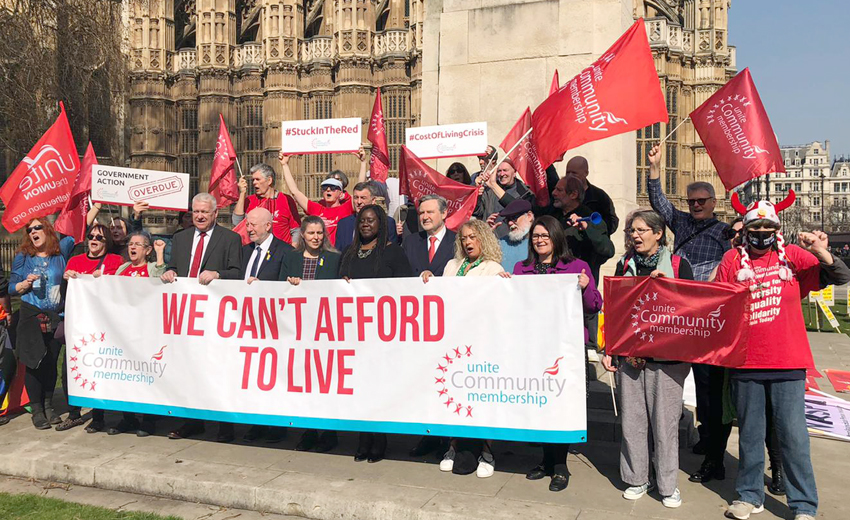UK INTEREST rates have risen to the highest level since 2009 as the Bank of England tries to slow the pace of rapidly rising prices.
Rates rose to 1% from 0.75%, the fourth consecutive increase since December.
Inflation, already rising at its fastest pace for 30 years, is expected to breach 10% by the end of the year, with fuel, energy and food costs soaring partly due to the UK-US stoked war in the Ukraine.
The Bank also warned that the UK economy is set to shrink next year.
It said inflation had ‘intensified’ following Russia’s invasion of Ukraine, prompting households to rein in their spending which was hitting growth.
The Bank raised interest rates again to try and counter this, the fourth time it has increased them since December, as it seeks to contain the rising cost of living.
In its latest report, the Bank’s Monetary Policy Committee (MPC) – which sets rates – predicted inflation would now hit 9% in the coming months – up from a previous forecast of 8% – and breach 10% by the end of the year.
It said the impact of the Ukraine war on household energy prices were largely to blame, following the increase in the energy price cap in April, and a further expected increase in October which could push household bills up to £2,800 a year.
Consumers are also facing much higher prices for food, goods and services, it said.
‘Global inflationary pressures have intensified sharply following Russia’s invasion of Ukraine. This has led to a material deterioration in the outlook for world and UK GDP growth,’ the Monetary Policy Committee said.
‘UK GDP growth is expected to slow sharply over the first half of the forecast period,’ it added.
‘That predominantly reflects the significant adverse impact of the sharp rises in global energy and tradeable goods prices on most UK households’ real incomes and many UK companies’ profit margins.’
The MPC now expects the UK economy to contract by 0.25% in 2022, down from its previous forecast of 1.25% growth.
The MPC has also slashed its growth outlook for 2023 to 0.25%, down from 1%.
The Bank is forecasting two quarters of falls in the size of the British economy over the next year.
The big picture though is of an economy now forecast to contract next year, at – 0.25%, having previously been forecast to grow at 1.25% in February. Even that figure was the the lowest in the G7.
Two factors are driving this – a prediction that energy prices are going up by 40% in autumn, much higher than the Bank’s previous forecasts.
And then government spending policy, especially the removal of the significant ‘superdeduction’ on corporation tax that has helped support businesses’ investment.
At the same time, at the end of this year, inflation is expected to exceed 10%, a rate not seen since 1982. Even before the Russia-Ukraine war, the economy was facing a perfect storm of supply problems, rising prices, and slowing growth.
The war has has dragged all of these contradictions to the point of explosion.
The Bank has now raised rates at four consecutive meetings. It is also going to begin the process of selling the corporate loans it bought as part of the post financial crisis rescue scheme.
The sale of government loans could start in autumn, putting more pressure on interest rates for companies households and the government.
All this is occurring at the same time as the economy is going into reverse. Indeed three members of the nine member committee, that decides rates, voted for a bigger rise of 0.5%.
In an interview on ITV on Tuesday, British Prime Minister Boris Johnson confirmed that his government could not provide enough support to offset the much higher cost of living.
‘I accept that those contributions from the taxpayer – because that’s what it is, taxpayers’ money – isn’t going to be enough immediately to help cover everybody’s costs,’ Johnson admitted.
British workers are experiencing the biggest squeeze since the 1950s, with soaring prices and surging inflation, targeting the low-income groups across the country.
Nearly a quarter of people in the UK say they are struggling to pay household bills even before the new hike in regulated energy prices takes effect, an official survey from a leading body reveals.
The only way out of this crisis is to organise the socialist revolution to expropriate the bosses and bring in a socialist planned economy.
